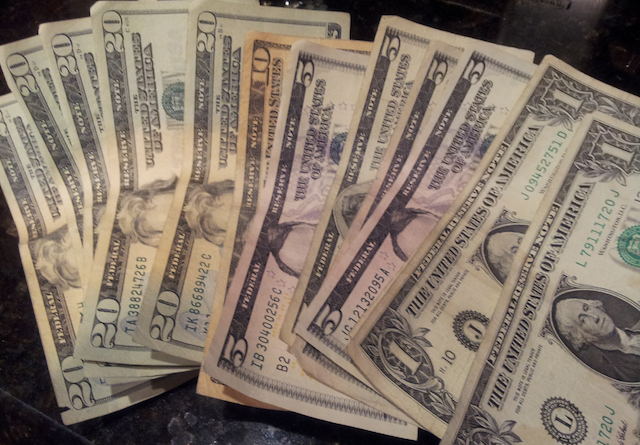The Cost of Milk for My Household Is Negative
I’ve mentioned in the past that one of the reasons some families end up with far higher net worths than others is that certain personality types are natural accumulators, or in some cases, behave in a more efficient manner. A lot of it is second nature. Tangible examples are always better than academic theory so tonight, I thought I’d show you a real case of this at work in my own life. No matter how much my income or assets expand, I will never not do things like this. It’s too easy. It’s free money.
The typical family spends $4.12 to buy milk in my neighborhood. Several years ago, my family figured out that there was a brand of organic milk from a local dairy that cost the equivalent of $14.16 per gallon, but if you returned the sanitized bottles, you would receive the equivalent of $16.00 per gallon, meaning you were paid to drink milk to the tune of $1.84 per gallon (no, I won’t tell you which one because that is not the point of this post and I’m not going to have them end the program by suddenly changing the economics due to a large influx of people taking advantage of it). It’s also a lot more convenient because you can buy dozens of smaller bottles and use them as individual servings. Plus, the higher transaction amount results in even more savings when you use a rewards program at your grocery store and stack it with a cash back credit card. It’s a total win here.

That is, everyone else is spending $4.12 for a gallon of milk, but we are being paid a net $1.84 for every gallon we drink. The cost of milk is negative in my household. Between the two gallons a week we go through, and the many family gatherings we host (there is a lot of milk involved when you are making Thanksgiving or Christmas dinner for everyone), we bought roughly 36 gallons of milk in the past six months. When we returned the bottles, we received $132 in cash. Add in the rewards and cash rebates on the bank card and it’s even higher.
How did this happen? 1.) We pay attention, and 2.) We’re mathematically proficient. It takes only a second to pass a small footnote on a price tag in the grocery store to convert serving sizes to gallon equivalents, cross reference it with the actual gallon containers, and then extrapolate the net savings based on the deposit return price. It’s simple mathematics. By keeping a look out for these sorts of things, they tend to cross our radar and require absolutely no additional time compared to the alternative.
When aggregated together, this behavior amounts to something meaningful. When you take the surplus cash and put it to work generating dividends, interest, and rents by buying high quality assets, suddenly, the money itself is producing more money. It explains why roughly 90% of millionaires in the United States are self-made (the figure is slightly lower when you get to the multi-billionaire rankings but still overwhelmingly, wealth is first generation made in this part of the world).
Pay attention. The small things add up to big things. The big things can throw off a lot of cash. That leaves more money for vacations, cars, clothing, or charity; whatever your preferences. Amassing money is a behavior. It’s why people who win the lottery but grew up poor end up poor again. Once you get the basics of how money works, it’s very easy to accumulate it, or to maximize what it can do for you.


